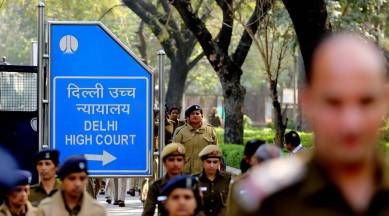Stay updated with the latest - Click here to follow us on Instagram
Consenting to be in man’s company does not mean consenting to sexual liaison: Delhi HC
The man is accused of a raping a Czech woman by allegedly pretending to be a spiritual guru in helping her perform the last rites of her deceased husband who had passed away in August 2019.

While denying regular bail to a man accused of raping a woman of Czech nationality, the Delhi High Court observed that merely because a woman consents to being in the company of a man, regardless of the duration can never be the basis to infer that she had also consented to “sexual liaison” with him.
A single judge bench of Justice Anup Jairam Bhambhani in its March 13 decision observed that a distinction needs to be made between a woman “consenting to a situation‟ versus her “consenting to sexual liaison‟.
monthly limit of free stories.
with an Express account.
“Merely because a prosecutrix consents to being in the company of a man, regardless of for how long, can never be the basis to infer that she had also consented to sexual liaison with the man. In the present case, merely because the prosecutrix agreed to accompany the petitioner to various holy places – for purposes of conducting last rites and rituals – does not ipso-facto imply that she consented to sexual relations with him,” the HC observed.
The man is accused of a raping a Czech woman by allegedly pretending to be a spiritual guru in helping her perform the last rites of her deceased husband who had passed away in August 2019.
The woman claimed that he had molested her in a hostel in Delhi in 2019 and subsequently engaged in “physical liaison” with her in Prayagraj in January 2020 and in Bihar in February 2020. The man claimed that the FIR was filed only in March 2022 in Delhi and the woman made no complaint nor any efforts to register any FIR at the various other places where she claims she was sexually assaulted. He also contended that their physical relation was entirely consensual. Opposing the bail plea, the state contended that only eight out of the 16 prosecution witnesses have been examined and that one of the crucial witnesses, a lady who is stated to be the woman’s friend, is yet to be examined.
The HC opined that while it was true that these incidents happened over a period of time and the woman had not alleged that she was held as a “hostage” by the man, that alone “would not be determinative of the state of the prosecutrix’s mind, for the court to be able to say at this stage that the alleged sexual liaisons were consensual”. The court also said that the woman’s silence with respect to the first alleged incident in a Delhi hostel “cannot be taken to be a licence for more aggravated sexual liaison, as has been alleged subsequently”.
The HC opined that a critical aspect of of rape is “consent‟, which as opposed to “compulsion‟ requires a more nuanced consideration. Justice Bhambhani held that though “consent given under force, coercion or duress” is not consent in law as it is not free in many cases, it is necessary to examine consent in a detailed manner while considering that the “substantivity of consent may be vitiated by several other circumstances that erode the freedom of choice”. Several circumstances, including emotional exploitation, may vitiate the substantivity of consent, the court observed.
The High Court expressed concern on the allegations raised by the woman stating that it discloses “deception and guile” on the man’s part in pretending to be a “holy man‟, guiding a foreign national with pious post-demise ceremonies of her husband.
The accused had himself stated that he took the victim to Prayagraj, Banaras and Gaya for the ceremonies. “At this stage however, this court is not reassured that the petitioner would not interfere in the course of justice by practicing the same guile and deception. Whether the prosecutrix and her prime-witness are in India or abroad, the petitioner‟s attempt to intimidate or influence them cannot be ruled-out,” the HC observed, dismissing the man’s bail plea. The HC however granted the man liberty to apply afresh for bail before the trial court, once the deposition of all prosecution witnesses is complete.